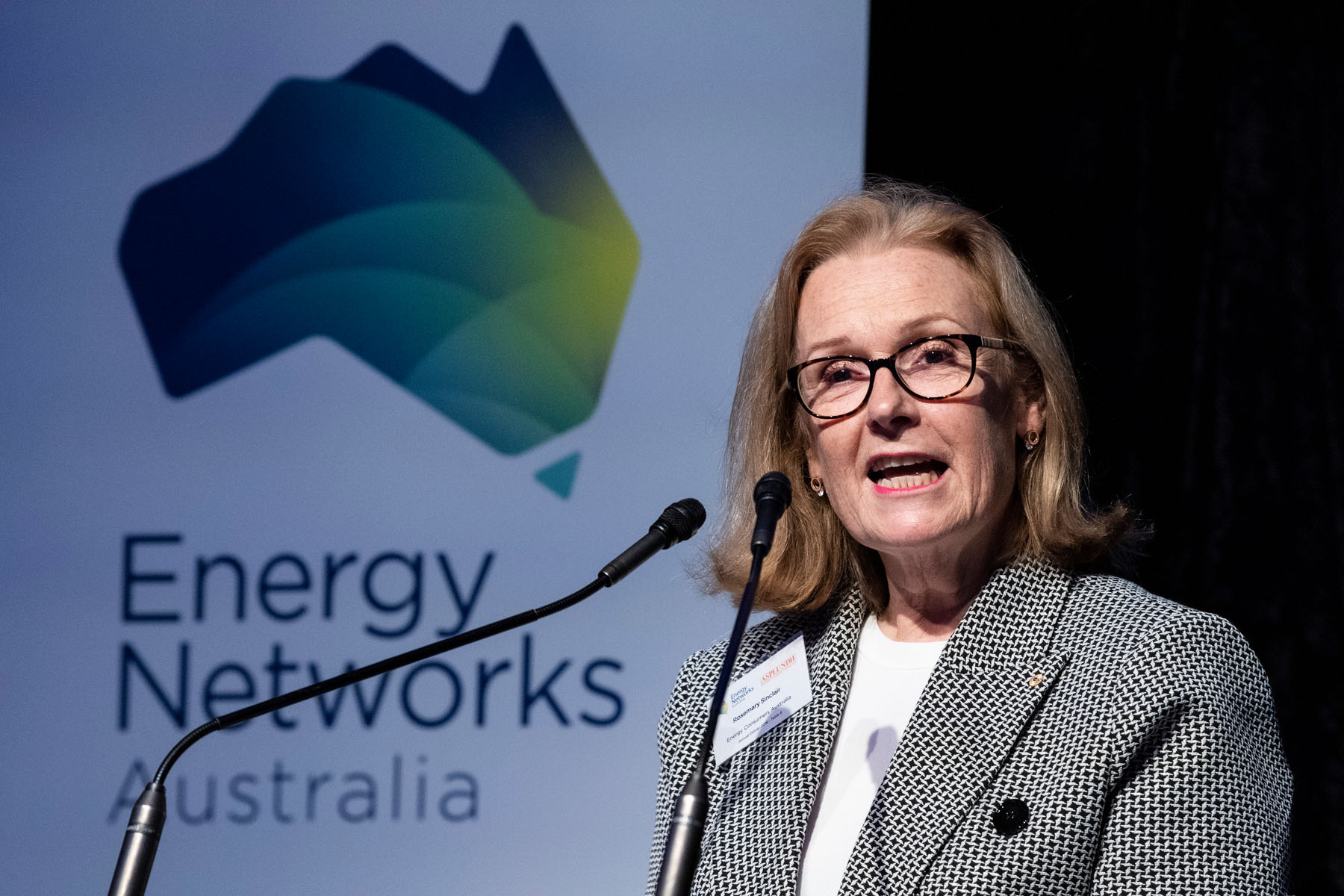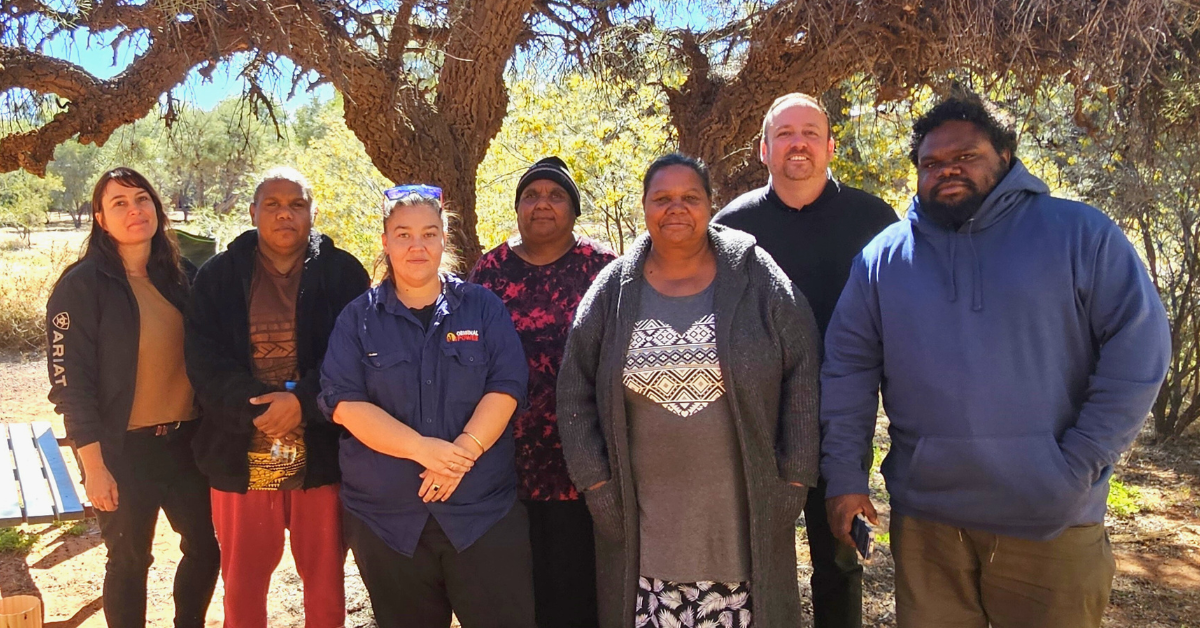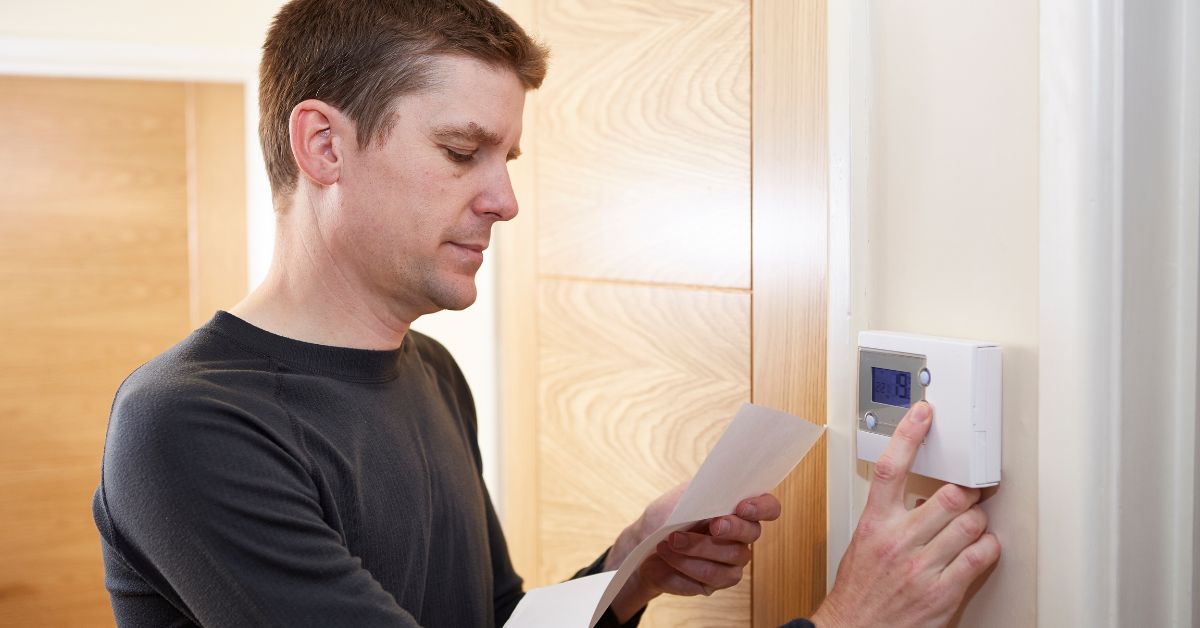This speech was delivered by Rosemary Sinclair AM at the Energy Network Annual Awards event on 12 September 2019. Rosemary’s role at the event was to announce the winner of the Energy Networks Consumer Engagement Award.

Thank you, Andrew, for the kind introduction.
I want to start by thanking my fellow members on the Judging Panel for the 2019 Consumer Engagement Award.
It is not enough for consumer engagement to look ‘good’ from the perspective of one person or one individual. And there is no ‘right answer’ that can double as the selection criteria for this award.
Real, authentic and effective consumer engagement connects companies with the diverse interests of their customers and the community.
To deliver essential energy services in very different contexts. And of course, to do so at a time of profound change.
And if consumer engagement practice is as an art form – as we will see from the nominees that it is.
It is perhaps more sculpture than painting – needing to be surveyed from multiple different perspectives (in front, from the side … behind) to properly understand or appreciate it.
That’s why we’re fortunate that we have a panel that can provide this 3D perspective, with years of experience working with companies as advocates, regulators and experts to get better outcomes for consumers:
- Gavin Dufty from the St Vincent de Paul Society in Victoria;
- Mark Henley from Uniting Care in South Australia;
- Robyn Robinson from Council on the Ageing – COTA in Queensland;
- Craig Memery from the Public Interest Advocacy Centre in NSW;
- John Devereaux from Goanna Consulting in Tasmania;
- Anne Pearson, supported by Anthony Bell, from the Australian Energy Market Commission; and
- Jim Cox, supported by Philip Cullum, from the Australian Energy Regulator.
I also want to thank Andrew and the team at Energy Networks Australia – with a special mention to Amanda Kennedy – for supporting the award and the Judging Panel.
Can I also thank Shelley Ashe who is our Network Lead at Energy Consumers Australia for her excellent work on the award.
The award of course recognises excellent practice by individual companies and teams within companies.
And we need to recognise and celebrate all the people and all the companies that are taking risks by trying new things and challenging themselves to deliver better – because their customers are benefiting right now, and because they are pushing on the frontier, because they are moving the sector.
In a very practical sense, the award is about accelerating this learning and diffusion process.
But in a larger sense, the award is one the best markers we have of our progress as a sector on The Big Challenges.
The first big engagement task was always to junk an adversarial model that was not working for consumers and to course-correct on costs.
The nominations for the 2019 Award and our own direct work with networks give me real confidence that we have gone a long way to achieving the former.
The days of settling these matters in the courts are fading from memory.
The new focus on alignment has seen networks work directly with consumers to produce proposals that are capable of acceptance by consumer groups and the regulator.
Efficiencies found and plans reshaped – through dialogue rather than regulatory or legal direction.
And now we’re seeing trust where we didn’t see it before.
Trust between the businesses and the customers that are attending deliberative forums, that are sitting on customer consultative committees, that are a part of co-design, that are being invited into the process for the first time – no longer for tea and bikkies and death by PowerPoint.
Trust between consumer groups and networks that affordability is coming first, that plans represent hard thinking.
And trust between businesses and regulators that proposals will deliver for consumers.
Now… it will take time and sustained improvements in affordability – from bills stabilised to bills down – before we see, the new levels of trust and the positive energy in this room showing up across the country in our Energy Consumer Sentiment Survey.
At the moment, we continue to hear from consumers:
“I think I have the same problem as other pensioners. I can only put my heater on for one hour a day and have to wrap in a blanket as the bills are so high.”
From small business:
“I’ve looked into solar. I have not got the roof space to put enough solar on to really give me any benefit for the cost of it. You can’t turn freezers off and on because it all comes under safe food program, and things have to be kept at minus 18 degrees constant.”
“We painted our roof white to get our electricity bills down.”
An important point is that on top of these concerns about the here and now, there is also a real interest from consumers in partnership and a real interest in the future which of course is … the next big engagement task.
The Energy Transition Task.
We see this as a shift of focus to individualised energy services
Delivered from an optimised energy system.
While keeping a weather eye on affordability.
Consumers are telling us they think the missing part of the trust puzzle is a long-term objective and an explicit, shared view about how we are going to manage the transition together.
“They were thinking ahead when they built the Harbour Bridge … where is that thinking now?”
And not just the big picture goal or aspiration of net zero by 2050 – a clean economy – but how to get there.
There is evidence coming through our research that consumers want clarity about how what they do – how they manage their energy bills, manage their use and technology to maintain the comfort of their homes and the competitiveness of their businesses – fits into a bigger, longer-term picture.
We are thinking about this in terms of a ‘New Energy Compact’ – built on consumer and community values in relation to essential energy services, that captures a new set of expectations and the responsibilities that come with a decentralised energy system.
Where making it easy and convenient for households and businesses to share their resources, to see value for their flexibility and assets as part of the solution – is an important principle.
Where ‘value’ is not just about pricing a commodity but has new dimensions as digitisation allows more people to trade-off their time and money, their skills or the skills of others, and select the level of risk that they want to take for the outcome they want.
The transition task needs a new mindset and new tools – for example – we need to create a value framework not just a technical framework for ‘DER’ – or in consumer plain English ‘my appliances’.
It’s not just about integrating devices into the grid. It’s about a new framework for responsibility and reciprocity, a framework that considers grid access, hosting capacities, platforms, performance and pricing.
This is a journey from big engineering and big economics to transition design.
We’re on a journey to add to the engineering base of a sector that is over 150 years old in Australia.
To add to the economics base that has underpinned the NEM for 25 years.
To add expectations that are enabled by digitisation and technology development and which are enabling a move over time to a cleaner economy.
A journey into new and uncomfortable territory where decisions about how we design this market will rest on a broader set of factors to safeguard essentiality and create new value.
A new energy compact which must reflect both responsibility and reciprocity.
Very recent research by KPMG on what motivates retail investors finds that Australian retail investors are now keenly aware of the importance of reputation, transparency, ethical behaviour, values alignment and social responsibility.
Shareholder value itself is now a complex idea.
The report makes the point “the great shock absorber of trust has been removed, leaving companies exposed.”
And this is where we would see consumer engagement – it is a trust task for the leadership team, not a technical task for stakeholder management team.
This shift to responsibility and reciprocity is, of course, predicated on us making a qualitative leap in terms of the depth and breadth of engagement between consumers, communities and businesses.
Engagement in 3D.
Our nominees and finalists are showing us that this is possible.
If you meet consumers where they are, if you create an environment where they are comfortable to express their values and the outcomes that are important to them in their own words, you will get the most extraordinary and nuanced feedback.
Feedback that is exciting and motivating for teams and organisations. Feedback that is redefining purpose.
Stories from the 2019 nominees demonstrate this shift in spades.
From a re-set on affordability to deeper engagement on Individualised outcomes and an optimised system.
Let me summarise the award nominations and finalists for you so you will see the art form that 3D consumer engagement is becoming. A fuller Judges’ Report will be available in short order!
The Nominees:
Ausgrid – where commitment to a company-wide re-set on consumer engagement included board level decisions on structural changes to embed at board level a focus on customer outcomes and a set of agreed engagement principles including explicitly “Be prepared to change based on feedback”. Engagement is now pervasive in this business, not confined to regulatory processes but shifting to innovation and information technology, policy and pricing. We would say the trust created by focusing first on affordability has built the base for a shift in focus to optimising and innovation for consumer benefit.
Ausnet’s – Good Grid demand response program for households. Ausnet says “At its heart demand side management is about valuing consumers in the energy system, helping customers learn how to manage use (which is of course Rosemary would say is an entirely different concept from the very unhappy phrase Educate Consumers) and learning directly about customers choices.” “The customer’s experience needs to be understood within the full context of their lives and the way they consume energy” Customers as much more than a connection point!!! We would say the focus here is on individualised services and optimised investment.
Energy Queensland for “Electricity and Water don’t Mix” – which continues the theme of meeting consumers where they are – literally in this case! This nomination reflected consumer engagement during a monsoon event in Townsville with two objectives: managing community safety and community expectations around restoration times. Using social media including EQ website, an online outage finder tool, Facebook and advanced spatial mapping to literally walk the talk house by house.
TasNetworks continues the theme of Individualised but this time through a network tariff lens using usage data to support customers in their decisions about electricity plans. Their nomination is their emPOWERINGyou Trial which focused on customer lived experiences as input to tariff design. The approach was multi-pronged reflecting the consumer preferences for communications and individual consumer circumstances. TasNetworks was open about the feedback “when consumers lack trust in their retailer/network they are likely to disengage” – a very different narrative to consumers aren’t interested or they are stupid and lazy! Another important finding was the expectation consumers have of the whole sector working together.
Western Power’s nomination for their engagement with the township of Perenjori to address a trust deficit with consumers very sceptical about Western Power’s ability to deliver a reliable electricity supply, The Battery Energy Storage System project is a first step in a more flexible, modular grid. Again, technology was used to improve communication with the consumers and senior leadership folk were “present”. Building trust through transparency. Giving people information to enable them to respond and be part of the solution
Next the Finalists for 2019 and their stories:
- Horizon Power and its Solar Incentives Scheme – working with eight Aboriginal communities as partners in change, Horizon Power and the communities over 12 months co-designed a program that addressed community concerns to deliver better outcomes. “The scheme is delivering cleaner and more affordable energy for some of our most remote communities…freeing up funds for the communities to invest in other services.”
- Jemena and its NSW Gas Networks Deliberative Forum – through the deliberative forum process, Jemena engaged with disparate consumer groups across NSW, to let consumer voices guide its access arrangement proposal for 2020-25. “Customers changed our plans to better meet their needs, ensuring our plan got the balance between short-term and long-term decisions right. As one of the participants put it, “after the Chairman of the Board’s presentation at the Sydney Forum it is clear Jemena are interested in customer concerns, not just shareholder interests”.
- Jemena Electricity (Vic) and its People’s Panel – using a representative citizen’s jury approach to engagement, Jemena assembled the People’s Panel to challenge and change their plans as they developed their regulatory proposal for 2021-25. “We wanted customers to meaningfully challenge and change our plans”. The customers provided 25 recommendations, 13 directly related to pricing and services. “Our customers became decision makers. The People’s panel contributed to our Draft Plan but more profoundly they helped shape our culture. We were not confident…they proved us wrong.”
- SA Power Networks community engagement on its tariff structure statement – working together with consumers to create tariffs that work for households and businesses in a new normal, transitioning to a new energy future. “We started with ground-breaking agreed customer impact principles Simplicity, Empowering the Customer, and Fairness and Equity. We heard our customers and responded by changing our plans. We wanted consensus. We had to move from complexity and creating challenges for retailers. We have landed on Carrot Tariffs, not Stick Tariffs with our customers and to their long-term benefit.”
- Powerlink and its co-design process – where it “handed over the keys to the car” to consumer advocates to build an engagement process for its 2023-27 revenue determination. Powerlink was clear eyed about the risks: expectations that can’t be met; the resourcing needed for front-ended engagement and having less control around a critical business initiative. What Powerlink reported was the risks were far outweighed by the benefits: confidence about meeting expectations, being able to learn from customers, identifying issues early, increased goodwill, getting early feedback on our Draft Proposal. “The whole experience reinforced the value of authentic engagement.”
This year’s nominations and finalists demonstrated a significant shift in gear – based on commitment to affordable services, authentic engagement – building capability to have the critical transition task discussions.
The winner….
One network stood out as the worthy winner of the 2019 Award:
- it met consumers where they are – tailoring engagement to them, ensuring that translators were on hand, childcare was available, and transport was provided to ensure that no one was left out of the conversation;
- with the support of the Board and its CEO, it fronted-up to this conversation in an authentic and respectful way; and
- it was ambitious about the conversation it wanted to have with its customers.
Can I congratulate Jemena for its Gas Networks Deliberative Forum in New South Wales and its Electricity Network People’s Panel – a representative citizens jury in Victoria.
Thank you.
ENDS


